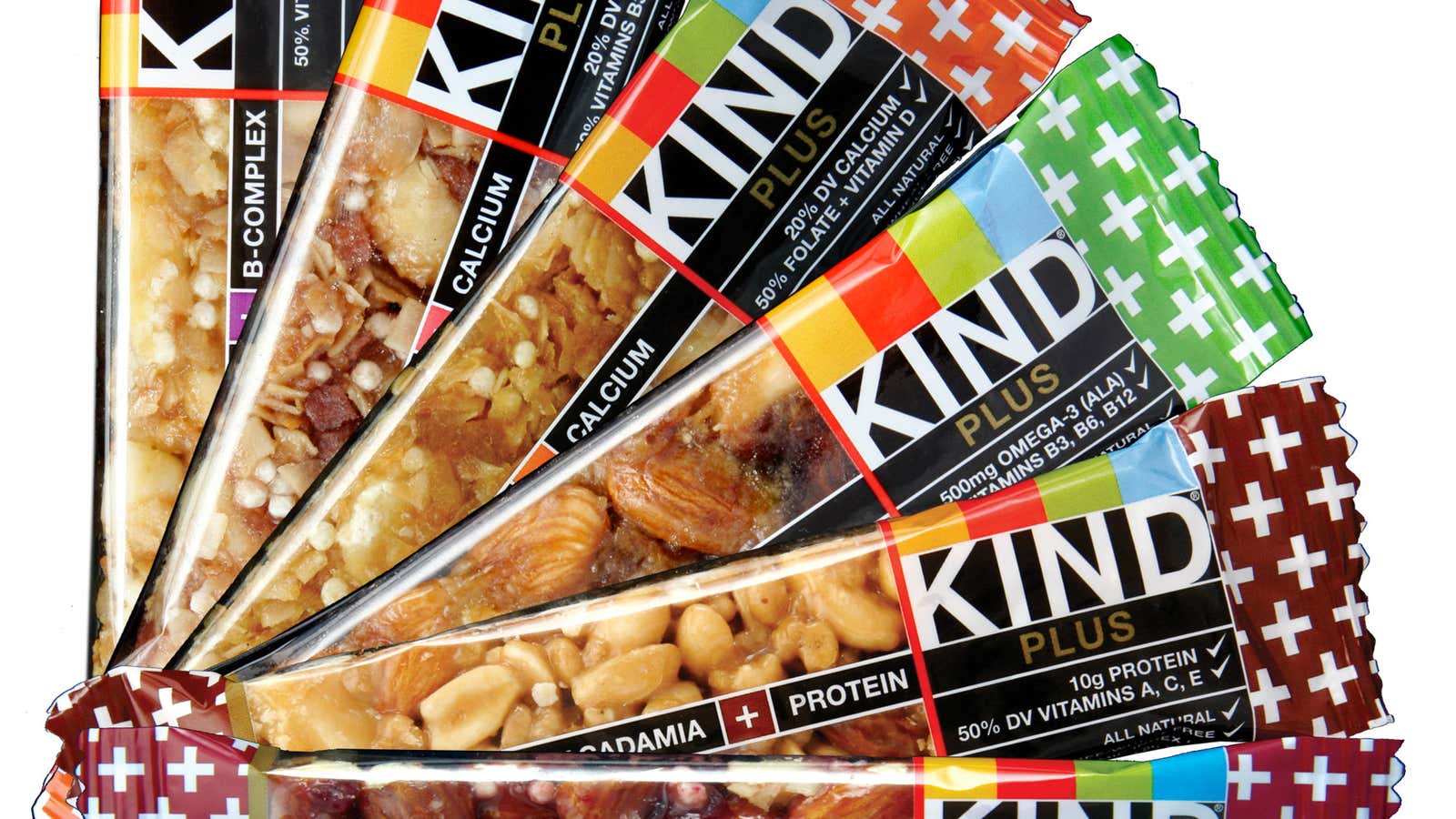It was only a matter of time.
Last month, the US Food and Drug Administration published the warning letter it had sent to snack bar maker KIND’s CEO, Daniel Lubetzky, chiding him for the company’s “healthy” label when KIND bars are not, according to the FDA definition, actually healthy. The bars, among other things, are too high in saturated fat to qualify.
Now the lawsuits are rolling in. In California, three separate class action suits have been filed against the company, all within 10 days of the letter’s publication, all making the same basic argument: KIND’s misleading marketing deceives consumers into buying food that isn’t healthy, at least by FDA standards. None allege that the bars physically harmed them.
“We’ve really crossed a bridge,” says Ted Craig, a consumer class action attorney who specializing in suits like these. ”There’s a long history of products liability where products are harmful or unhealthy,” he says. Suing for a product that misleads but isn’t harmful is “going to the next level.”
The lawsuits are undoubtedly driven by lawyers, not consumers, adds Craig. If the plaintiffs prevail, which is not guaranteed, even with the FDA warning letter, there is still a question about how they will be compensated. Say consumers get back the full dollar amount of their KIND bar purchases—something Craig says is unlikely since the bars still have some value—that still only amounts to about $2/bar.
The lawyers litigating the case, however, will get a percentage of the total amount rewarded to everyone—a much, much higher amount than what any individual consumer will take home. The plaintiffs are filing suit “solely for purposes of recovering money damages and not in the name of protecting consumers,” says Craig. That explains why there are three class action lawsuits, all filed within one week of each other, rather than one. “Three different groups of lawyers [are] trying to be the one that represents the class,” Craig says.
KIND makes for a good target: It’s a relatively small player in the $2.8 billion energy and nutrition bar market (it sold roughly $336 million in KIND bars last year, according to Euromonitor) that doesn’t have the legal or financial might that a dominant player like Kellogg would.
What’s worse, these lawyers are building on an FDA judgment that seems out of proportion. ”Technically, the FDA is correct that KIND didn’t comply [with requirements for ‘healthy’], specifically with regards to fat content,” says Sherzod Abdukadirov, a research fellow at George Mason University public policy think tank the Mercatus Center. But when it comes to saturated fat, he says, the science is not settled. “The FDA does have discretion about which companies to go after,” he says, adding that sending the letter to KIND was a “heavy-handed tactic.”
“I think the FDA is being overly zealous,” says Craig. KIND bars present “a very picayune problem in the eyes of the FDA where we have bigger fish to fry.”
For its part, KIND stands by the healthfulness of its products, whether or not they qualify under FDA definitions. “Nuts, key ingredients in many of our snacks and one of the things that make fans love our bars, contain nutritious fats that exceed the amount allowed under the FDA’s standard,” says Joe Cohen, SVP of Communications at KIND. “There is an overwhelming body of scientific evidence supporting that nuts are wholesome and nutritious.” In any case, the company is working with the FDA to come into compliance.
Quartz reached out to the attorneys listed on the class action complaints and the FDA, but hasn’t received a response. The post will be updated if/when we get one.
